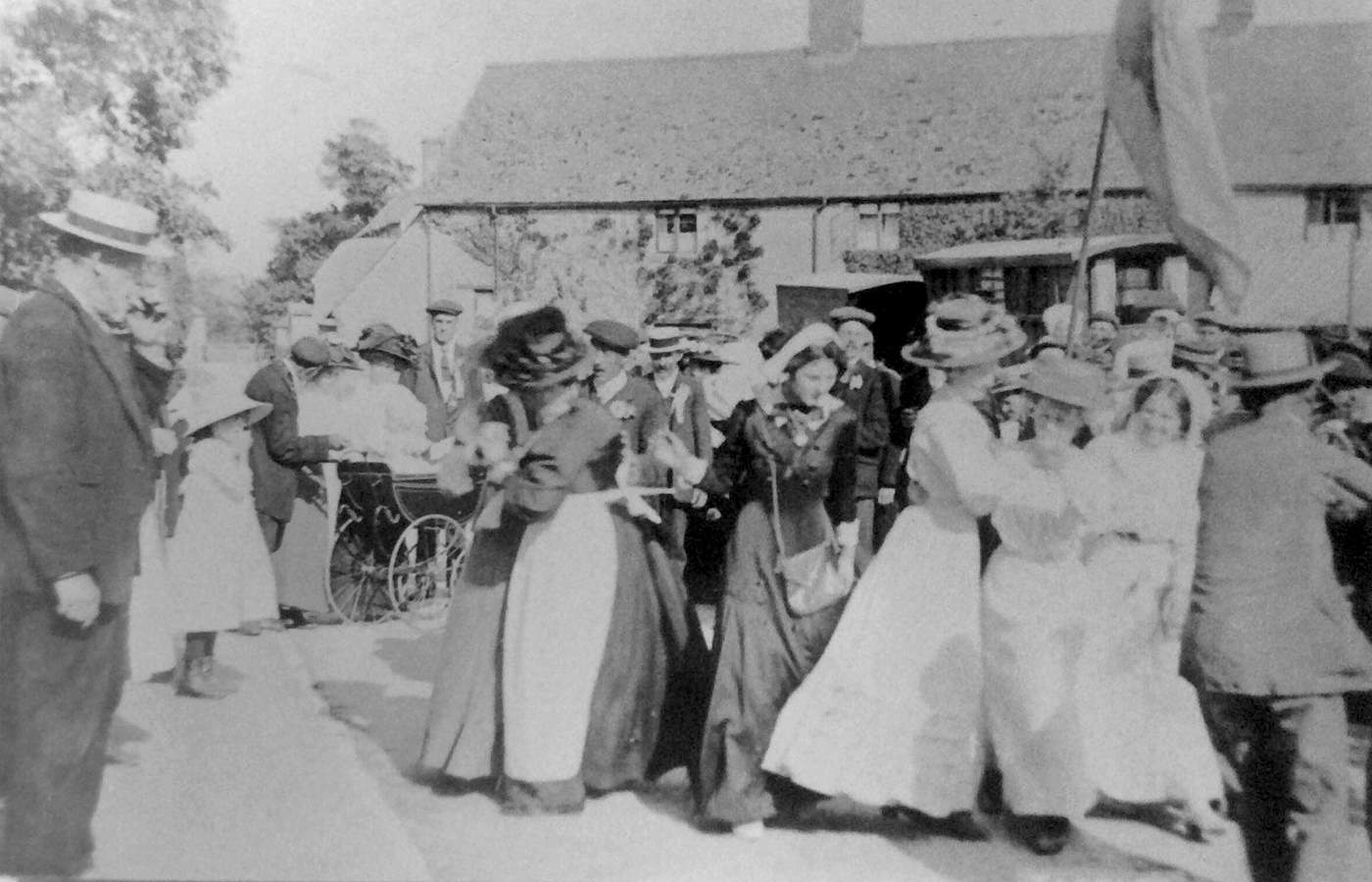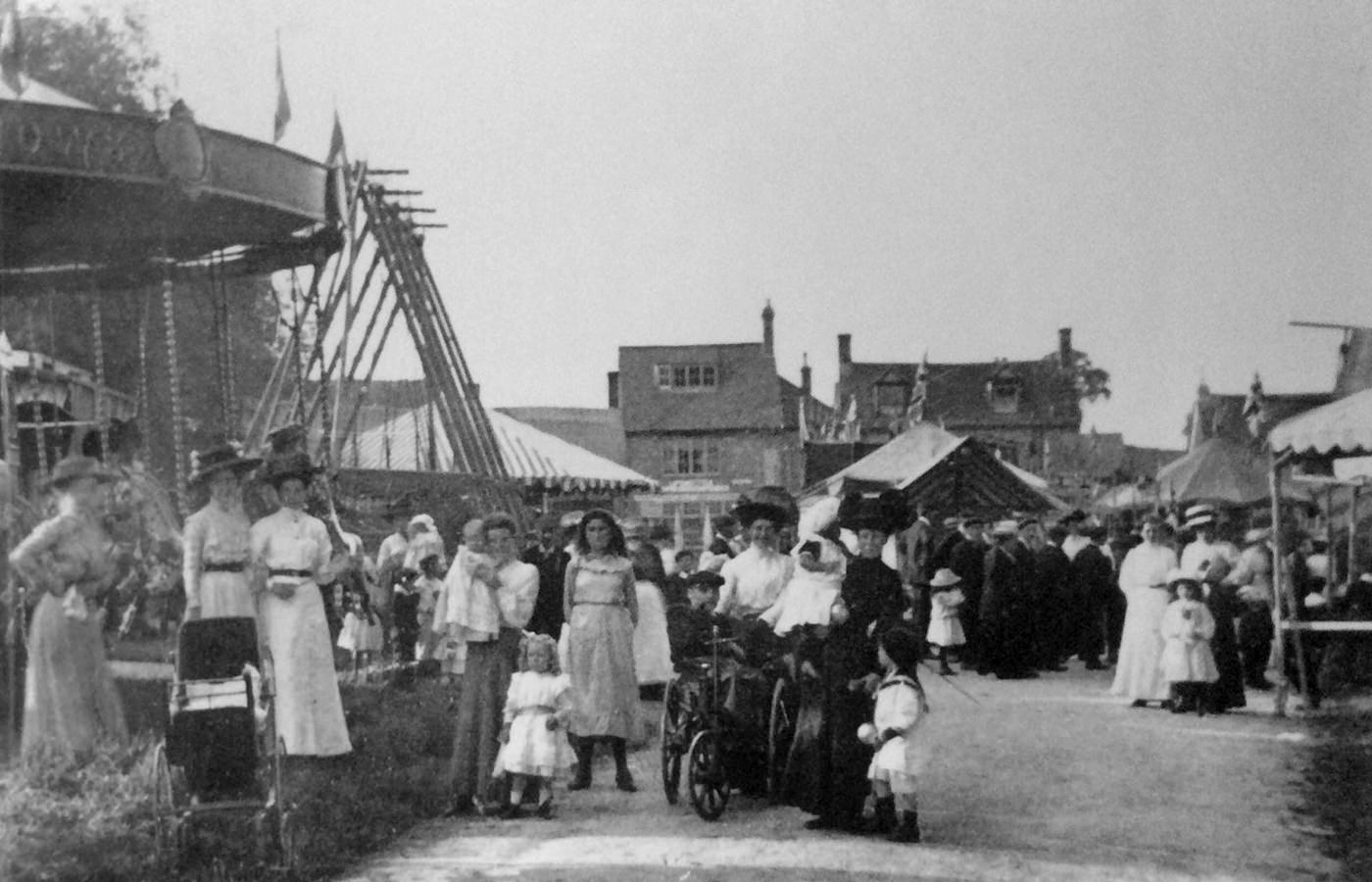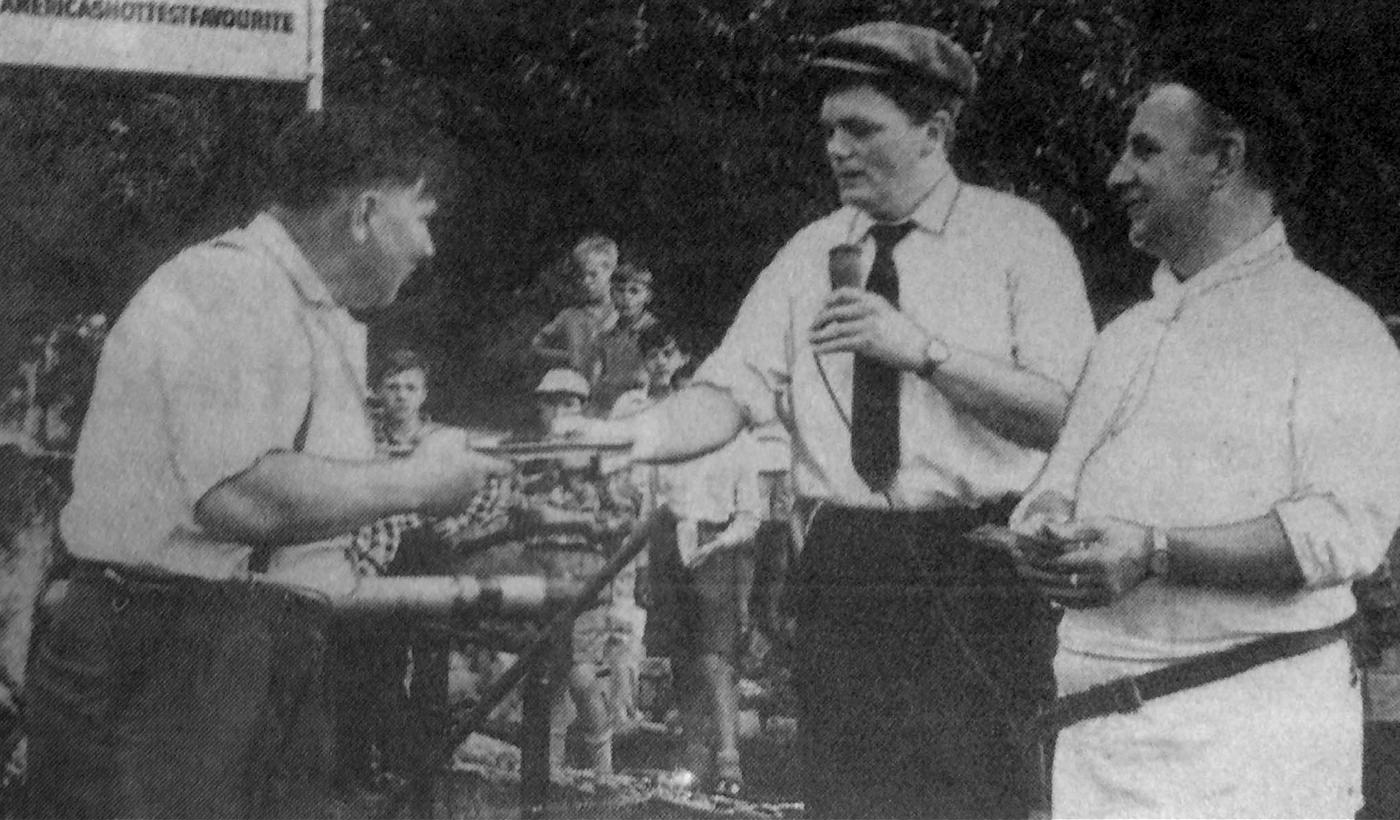Tackley History Mysteries No. 7
Tackley Feast
A number of villages around here, including Kirtlington, Wootton, Middle
Barton, Westcott Barton, North Aston and Steeple Aston held village feasts
or wakes from at least the 18th century and in some cases for much longer.
Tackley is no exception. In the early 18th century our wake was held,
appropriately, on the Sunday before or after St Nicholas’ Day in early
December.
The first record of Tackley Feast is a tragic one. The Reading
Mercury for 12 December 1746 noted that eight people from
Kirtlington returning home from the feast were drowned crossing the
Cherwell, which was in flood.
The next mention is 120 years later. Held in mid-July 1867, it was called
the Club Feast, and was organised by the Tackley Friendly Society which had
close connections with the church. It was a fairly modest affair compared to
what it was to become. After a church service and a sermon in the morning,
sixty members and friends had lunch followed by games in a field and then
supper, all presided over by the Reverend Sharpe. The Bicester Brass Band
provided entertainment.
Twenty years later, in July 1886, the format was the same with Reverend
Sharpe presiding and the Banbury Foundry Band in attendance.
By 1895 the direct connection with the church had gone. It was now run by
the Kings Arms Friendly Society, and was presided over by squire Evetts. The
format was the same: a sit-down lunch for thirty members; swings,
roundabouts and games in Mr Hutchins Close — he lived at Malthouse Farm; and
the Stonesfield Brass Band. It still lasted just a day.

 Fair on The Green in 1904
Fair on The Green in 1904
By 1913 that had changed. It continued to be held in July, but now lasted
for three days and included a fair on The Green. It was still organised by
the Kings Arms Friendly Society, and was still called the Annual Club Feast.
That year our parish register records the death here of Thomas Smith of
Deddington, a showman who was attending the feast.
It then gets difficult to work out its 20th century history. It was still
going strong in the 1960s: the History Group has a film of it on The Green
in 1965; and the parish registers record the deaths of three more showmen at
the feast in July 1966, July 1969 and July 1970 — all of them from Oving
Lane, Ovingham, Whitchurch, Bucks, where several show families were based.
Tackley was a venue that travelling showmen must have looked forward to with
some trepidation!
How soon after that did it fade? Is the annual visit to the playing field
by Hebborns funfair the last vestiges of a very long history?
Gala Day
There are also memories of another annual event that went back to at least
the early 1950s and probably well before then. Known as the Tackley Club or
just the Club, it was held on the playing field. In an article in the
Tackley Year Book for 1962, Jim Laughton explains that he had the idea of
adding an ox roast to the Gala Day, the official name for the Club, in order
to raise more money for village organisations including the sports club and
the youth club. The youth club raised funds for a seaside holiday for old
people from the village. The programme for the event, which was held on
2 September 1961, included six-a-side football with sixteen teams, a
fancy dress parade, crowning of the beauty queen, plus the usual attractions
of a village fete. The ox was ready by 6 pm and was sold out by 9:30,
although the beer held out until 11 o’clock. Nearly 2,000 people
attended.
 Ox roast at Gala Day in 1961. Left: Bob Laughton
Ox roast at Gala Day in 1961. Left: Bob Laughton
Gala Day continued to be held for a number of years. An ox was still being
roasted in 1964, but at some time it was decided that the roasting took too
long, and it was replaced by pig roasts. How long did it continue for? What
was its connection to the village fete that was held on the playing field
until it finally petered out about ten years ago?
The Kings Arms Friendly Society, and later its social club, were involved
in both the feast and the Gala Day. In the 1960s the Gardiner Arms also had
a social club. Was there a rivalry between the two pubs? Whether there was
or not, both pubs had a central place in village life.
Research and text: John Perkins.
Photos from Simon Somerscales’ collection. Published: 2021
More Mysteries